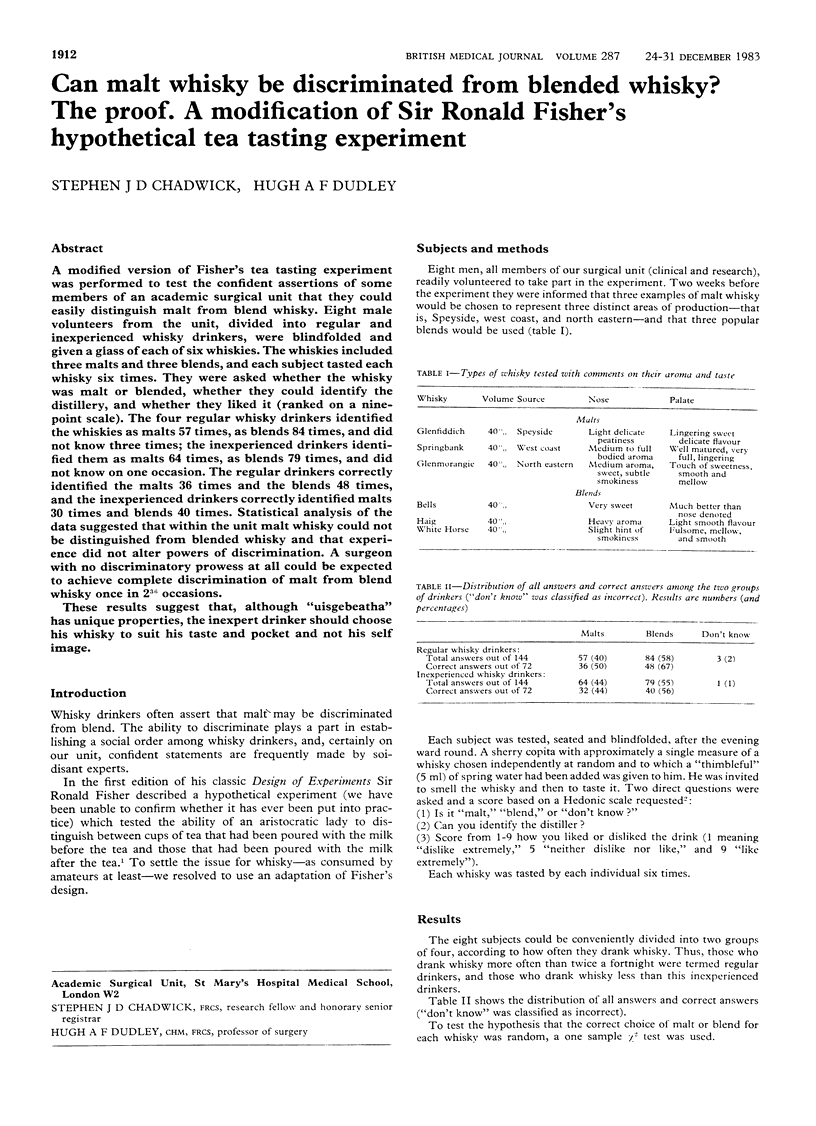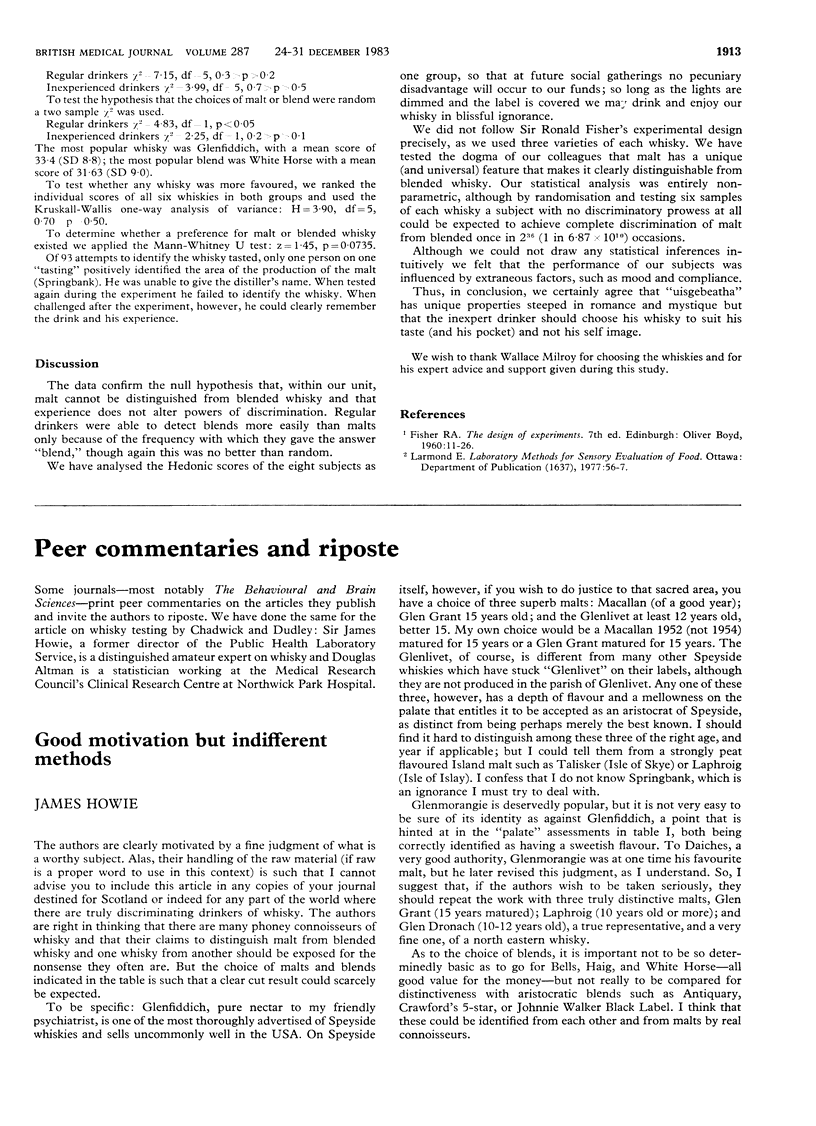Abstract
A modified version of Fisher's tea tasting experiment was performed to test the confident assertions of some members of an academic surgical unit that they could easily distinguish malt from blend whisky. Eight male volunteers from the unit, divided into regular and inexperienced whisky drinkers, were blindfolded and given a glass of each of six whiskies. The whiskies included three malts and three blends, and each subject tasted each whisky six times. They were asked whether the whisky was malt or blended, whether they could identify the distillery, and whether they liked it (ranked on a nine-point scale). The four regular whisky drinkers identified the whiskies as malts 57 times, as blends 84 times, and did not know three times; the inexperienced drinkers identified them as malts 64 times, as blends 79 times, and did not know on one occasion. The regular drinkers correctly identified the malts 36 times and the blends 48 times, and the inexperienced drinkers correctly identified malts 30 times and blends 40 times. Statistical analysis of the data suggested that within the unit malt whisky could not be distinguished from blended whisky and that experience did not alter powers of discrimination. A surgeon with no discriminatory prowess at all could be expected to achieve complete discrimination of malt from blend whisky once in 2 occasions. These results suggest that, although "uisgebeatha" has unique properties, the inexpert drinker should choose his whisky to suit his taste and pocket and not his self image.
Full text
PDF



